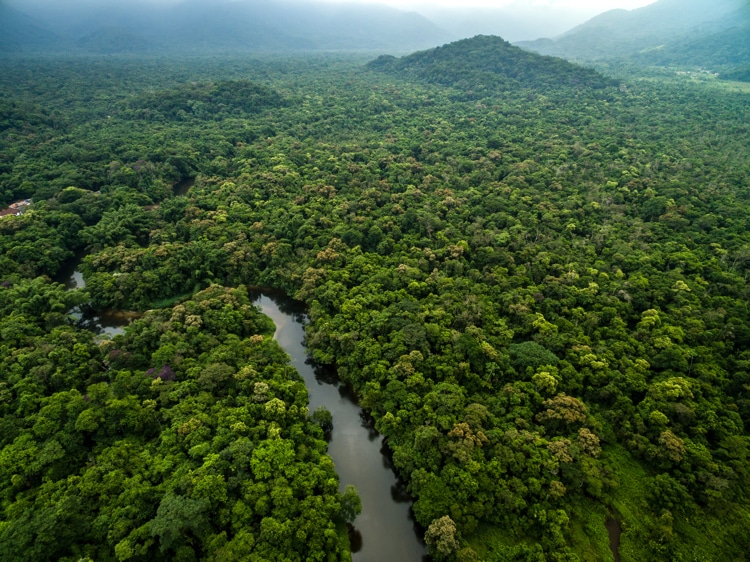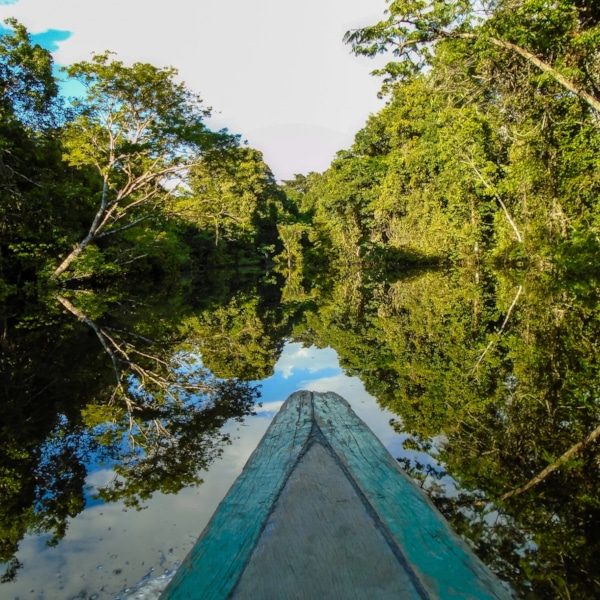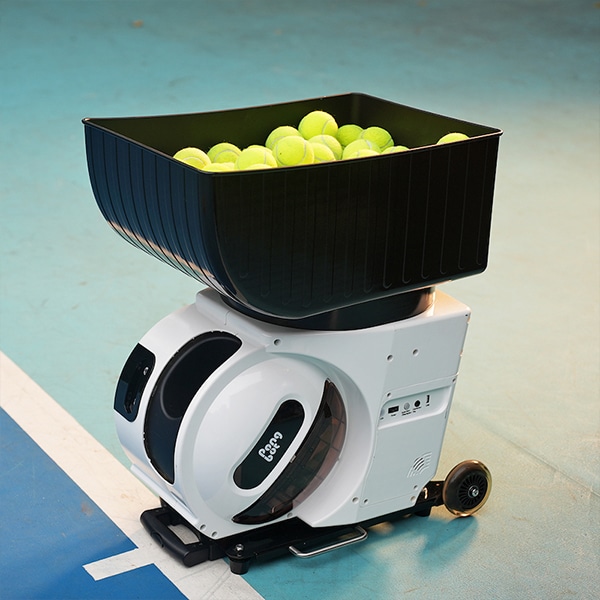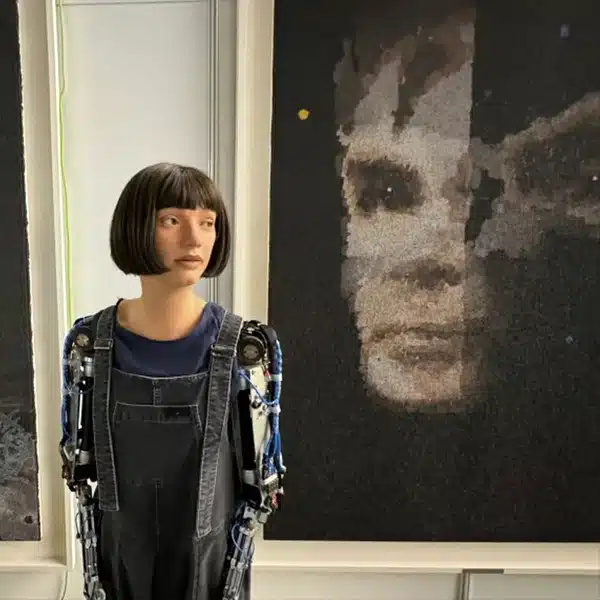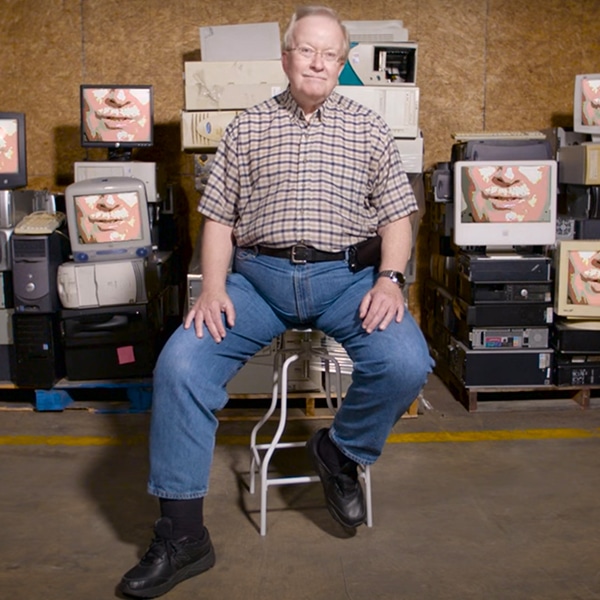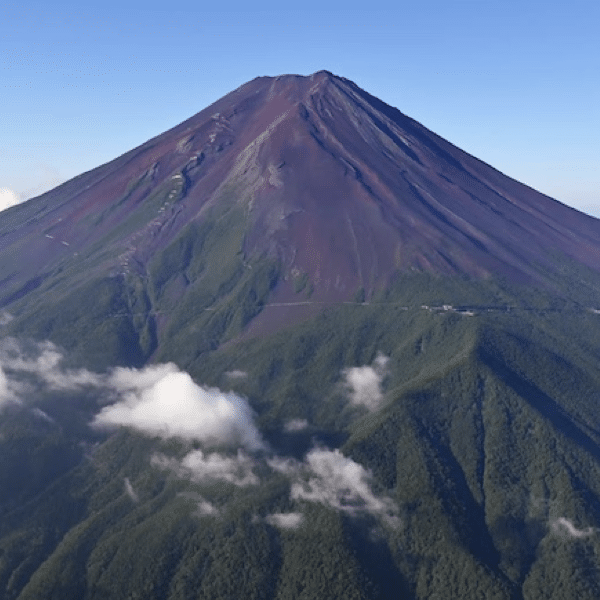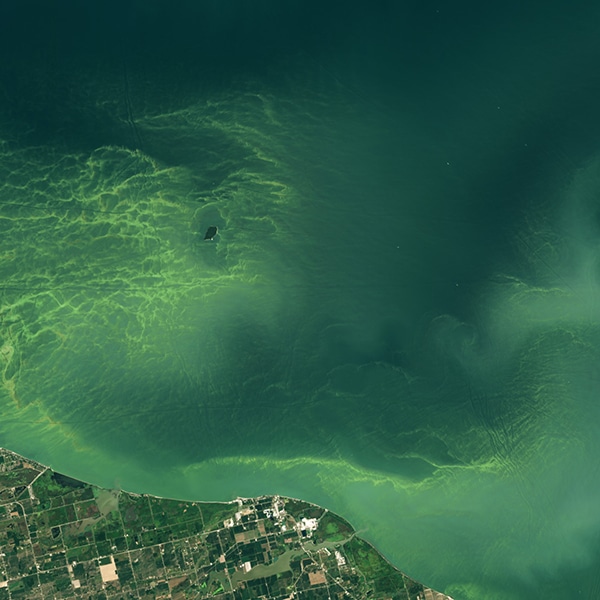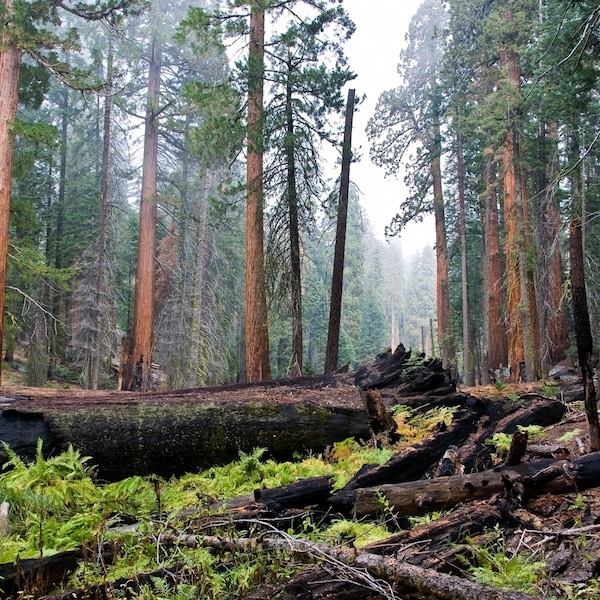If you thought drones were just for taking pictures, think again. A U.K. startup is hoping to kick start efforts against deforestation by leveraging drone technology. BioCarbon Engineering, whose CEO Lauren Fletcher spent 20 years as a NASA engineer, is pledging to plant 1 billion trees using industrial technology.
After a long development and planning phase, their initial efforts will start in September, when they team with non-profit Worldwide International Foundation. The organization has been leading planting efforts in Myanmar, where they've already planted, by hand, 1,850 acres (750 hectares) of mangrove trees. With the aid of the drones, which can plant up to 100,000 trees a day, they'll be able to plant an additional 1 million trees over 620 acres (250 hectares) in a fraction of the time.
How does it work?
The drones first fly overhead in order to create 3D maps of the area to be reforested. These maps are analyzed to create a seeding pattern suited to the terrain. It's this step that places the technology ahead of regular aerial seeding methods. “We can modify what to plant, and where, so you have the highest chance of survival,” shares Irina Fedorenko, co-founder of BioCarbon Engineering. “If you do aerial spreading—you just spread seeds wherever—maybe they hit a rock, maybe they hit a swamp, and they're not going to survive. But we can basically control for that.”
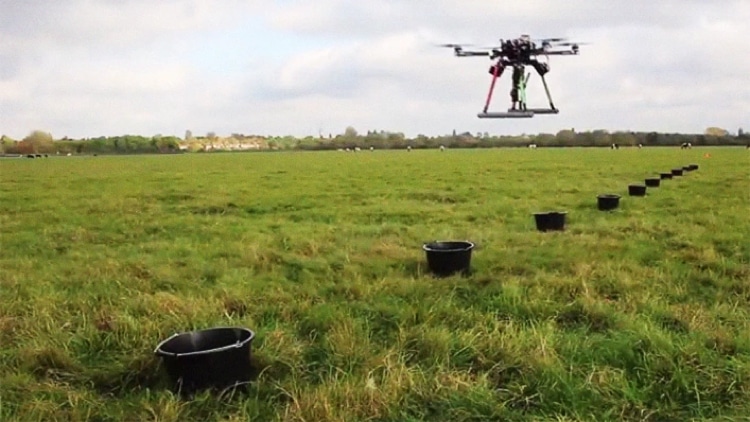
Photo: BioCarbon Engineering
The drones then make a second pass over the terrain, this time firing out seed-pods at a speed that will allow for ground penetration. Each drone carries a mix of seed pods and follows the flight pattern to shoot out the correct seeds in the correct place with incredible precision. And with one drone pilot capable of manning up to 6 drones at one time, it is possible to reach up to 100,000 plants a day. This will free up labor to care for seedlings and monitor their growth.
“Planting trees on its own is not actually that hard,” Fedorenko says. “The crucial part of the ecosystem restoration project is not actually planting trees, it's the post-planting monitoring and management.” Initial testing in the U.K. has demonstrated that the drone planted species have a better survival rate than the helicopter spreading that's more commonly used, with some species showing survival rates nearly identical to hand planting.
After their work in Myanmar, the company is hoping to bring the technology to South Africa and the Amazonian jungle, where rampant deforestation has destroyed precious ecosystems.
See how drone technology is being used to combat deforestation in Myanmar by U.K. startup BioCarbon Engineering:
BioCarbon Engineering: Website | Facebook
h/t: [Fast Company, Wired]
Related Articles:
Couple Spends 26 Years Rebuilding an Ecosystem on Abandoned Land in India
Innovative ‘Plan Bee’ Drone Artificially Pollinates Plants Like a Real Bee
India Aims to Break World Record by Planting 50 Million Trees in 24 Hours
